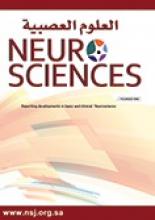DECEMBER 18, 2023 - Results from a phase II clinical trial indicate that psilocybin, a hallucinogenic chemical found in certain mushrooms of the genus Psiloybe, may benefit individuals with cancer and major depression. Trial participants treated with psilocybin not only experienced a lessening of depressive symptoms but also spoke highly of the therapy when interviewed at the end of the trial. The findings are published by Wiley in two articles appearing online in CANCER, a peer-reviewed journal of the American Cancer Society.
By binding to a specific subtype of serotonin receptor in the brain, psilocybin can cause alterations to mood, cognition, and perception. Psilocybin is currently classified as a Schedule I drug—defined as having no accepted medical use and a high potential for abuse—and is not approved by the US Food and Drug Administration for clinical use. However, multiple randomized controlled trials have demonstrated the safety and potential efficacy of psilocybin-assisted therapy—which combines psilocybin with psychological support from trained therapists—to treat major depressive disorder. Additionally, ongoing research is looking into the use of psilocybin-assisted therapy for various other mental health conditions, such as anxiety, addiction, and post-traumatic stress disorder.
In this latest phase II open-label trial involving adults with cancer and major depression, 30 participants at Sunstone Therapies in Rockville, Maryland received a single 25 mg dose of synthesized psilocybin plus a 1:1 session with a therapist and group therapy support.
“This study was differentiated by its group approach. Cohorts of 3-4 patients were simultaneously treated with 25 mg of psilocybin in adjacent rooms open at the same time, in a 1:1 therapist:patient ratio. The cohorts had preparation for the therapy as well as integration sessions following the psilocybin session as a group,” explained lead author Manish Agrawal, MD, of Sunstone Therapies.
Participants enrolled had moderate to severe depression scores at baseline. After eight weeks of treatment, Dr. Agrawal and his colleagues observed that patients’ depression severity scores dropped by an average of 19.1 points, a magnitude that would indicate the majority no longer experienced depression. Furthermore, 80% of participants experienced a sustained response to treatment, and 50% showed full remission of depressive symptoms after one week, which was sustained for eight weeks. Treatment-related side effects such as nausea and headache were generally mild.
“As an oncologist for many years, I experienced the frustration of not being able to provide cancer care that treats the whole person, not just the tumor,” said Dr. Agrawal. “This was a small, open-label study and more research needs to be done, but the potential is significant and could have implications for helping millions of patients with cancer who are also struggling with the severe psychological impact of the disease.”
Dr. Agrawal is also the senior author of a second study led by Yvan Beaussant, MD, MSc, of Dana-Farber Cancer Institute that gathered input from patients in the trial during exit interviews. Participants described generally positive experiences. In terms of safety, they noted that being a part of the group calmed their fears and increased their sense of preparedness to engage in therapy. Regarding therapeutic efficacy, they felt that being connected to the group deepened and enriched their experience, ultimately contributing to their experience of self-transcendence and compassion for one another. Also, the use of both individual and group sessions was found to support the therapy in different ways. For example, the implementation of individual and group sessions allowed the therapy to remain an intimate introspective process while adding a sense of “togetherness” to it.
“As a hematologist and palliative care physician and researcher, it was profoundly moving and encouraging to witness the magnitude of participants’ improvement and the depth of their healing journey following their participation in the trial. Participants overwhelmingly expressed positive sentiments about their experience of psilocybin-assisted therapy while emphasizing the importance of the supportive, structured setting in which it took place,” said Dr. Beaussant. “Many described an ongoing transformative impact on their lives and well-being more than two months after having received psilocybin, feeling better equipped to cope with cancer and, for some, end of life.”
Before this intervention is implemented into clinical practice, additional studies should include larger numbers of patients, along with a control arm to compare its effects with other treatments or placebo. URL upon publication: https://onlinelibrary.wiley.com/doi/10.1002/art.42733
Full citation: “Psilocybin-assisted Group Therapy in Patients with Cancer Diagnosed with a Major Depressive Disorder.” Manish Agrawal, William Richards, Yvan Beaussant, Sarah Shnayder, Rezvan Ameli, Kimberly Roddy, Norma Stevens, Brian Richards, Nick Schor, Heather Honstein, Betsy Jenkins, Mark Bates, and Paul Thambi. CANCER; Published Online: December 18, 2023 (DOI: 10.1002/cncr.35010).
URL Upon Publication: http://doi.wiley.com/10.1002/cncr.35010
Copyright © 2021 The Cochrane Collaboration. Published by John Wiley & Sons, Ltd., reproduced with permission.
- Copyright: © Neurosciences
Neurosciences is an Open Access journal and articles published are distributed under the terms of the Creative Commons Attribution-NonCommercial License (CC BY-NC). Readers may copy, distribute, and display the work for non-commercial purposes with the proper citation of the original work.






